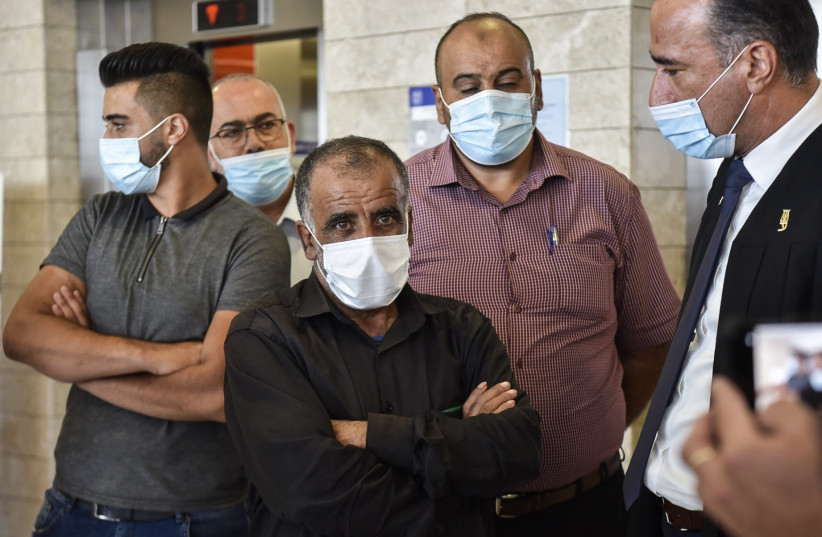The Supreme Court on Thursday rejected the appeal of Amiram Ben Uliel’s conviction and life sentences for the terrorist arson murders of the Palestinian Dawabshe family in Duma in 2015.
The appeal came before Justices Yosef Elron, Yitzhak Amit and Shaul Shochet in March.
Religious Zionist Party MK Simcha Rothman and MK and lawyer Itamar Ben-Gvir immediately slammed the decision and the court in general as biased. This is despite the fact that Elron and Shochet were both considered picks for the country’s conservative camp. Even Amit is viewed by many as a moderate swing vote.
In March, lawyers for Ben Uliel had told the justices that the Shin Bet (Israel Security Agency) tortured him during his interrogation, which should have invalidated his confession that led to his acquittal.
Ben Uliel’s defense team made similar arguments to the Lod District Court. However, new lawyers Avigdor Feldman and Yehoshua Resnick said those lawyers fought more over whether the confession was true or not, and did not try to disqualify it on the principle that it should be inadmissible due to torture simply because torture was used.

In the lower court decision, the judges did disqualify some of Ben Uliel’s confessions.
However, they left in place his confessions that came before or 36 hours after he was subjected to enhanced interrogation by the Shin Bet.
In addition, Resnick said the defense team below did not force the lower court to address whether the Shin Bet’s tactics were “only” enhanced interrogation, and not torture, and that even enhanced interrogation was illegal because there was no “ticking bomb” exception.
When the Supreme Court prohibited torture in interrogations in 1999, it allowed an exception of more limited enhanced interrogation in cases where lives were imminently at stake.
What did Shin Bet ask Ben-Uliel?
Yet, Resnick said that for the first 17 days of interrogation, the Shin Bet did not ask Ben Uliel any questions about future potential threats, only about the prior Duma incident in which he was a suspect.
Resnick said that the Shin Bet only later asked him about future potential plots to try to cover for the fact that they had used enhanced interrogation, and that this point was not raised before the lower court.
Ben-Gvir’s criticism of the court on Thursday noted that the court did not disqualify all of the confessions but ignored that some confessions had already been tossed out by the lower court.
Writing for the panel, Elron – who has disqualified evidence when acquired in controversial ways in high-profile cases – expressed unease with the Shin Bet’s tactics. Nonetheless, he and the other justices said they found the video footage of Ben Uliel convincing, and that those confessions which were not disqualified were authentic and proved he was the ideological murderer.
The Public Committee Against Torture in Israel, which is known for handling cases for allegedly tortured Palestinian terrorism suspects, criticized the ruling and called on the Knesset to pass a law outlawing torture and requiring taping all Shin Bet interrogations.
The group said this was the right thing to do, that it would avoid detainees falsely admitting to crimes they did not commit simply to end torture, and was necessary “so that we do not lose our humanity as a society.”
